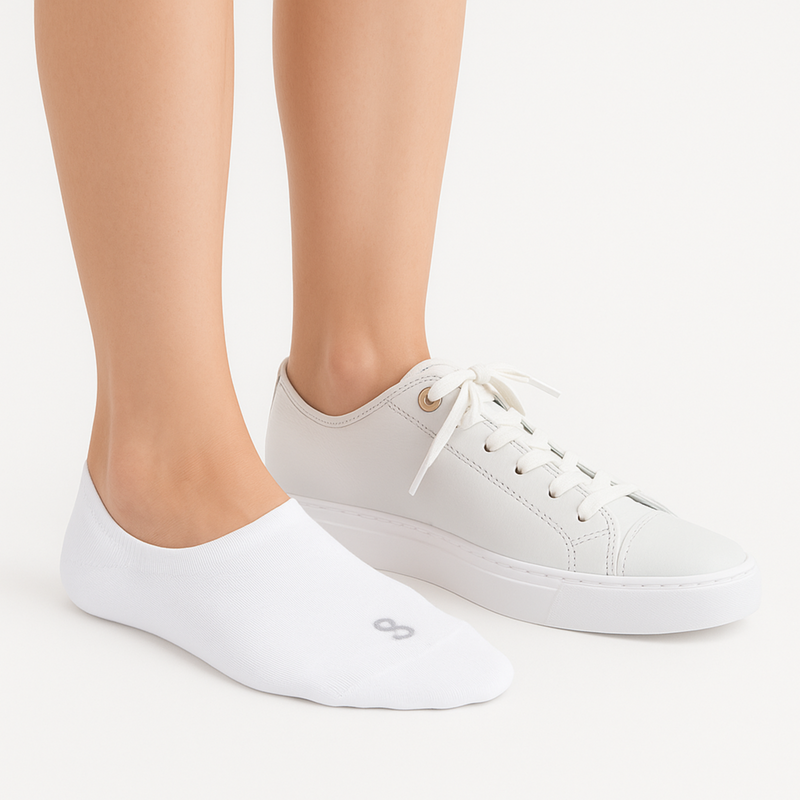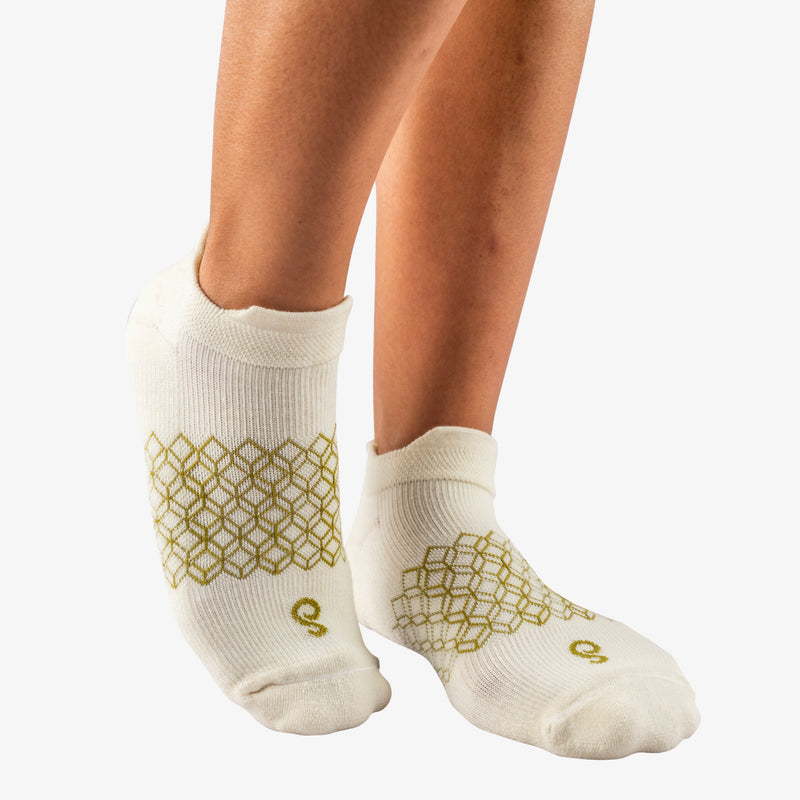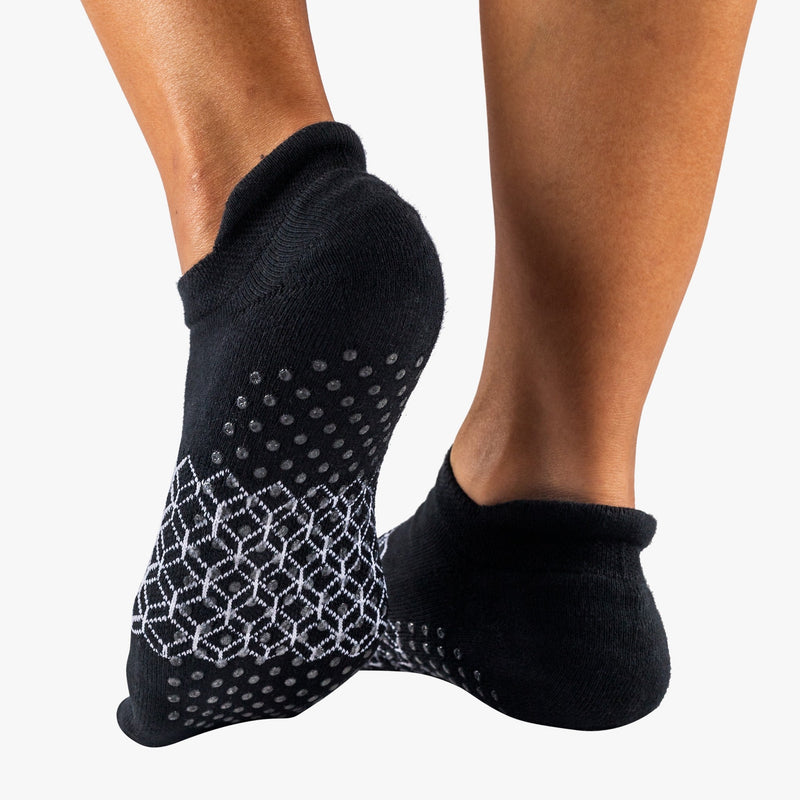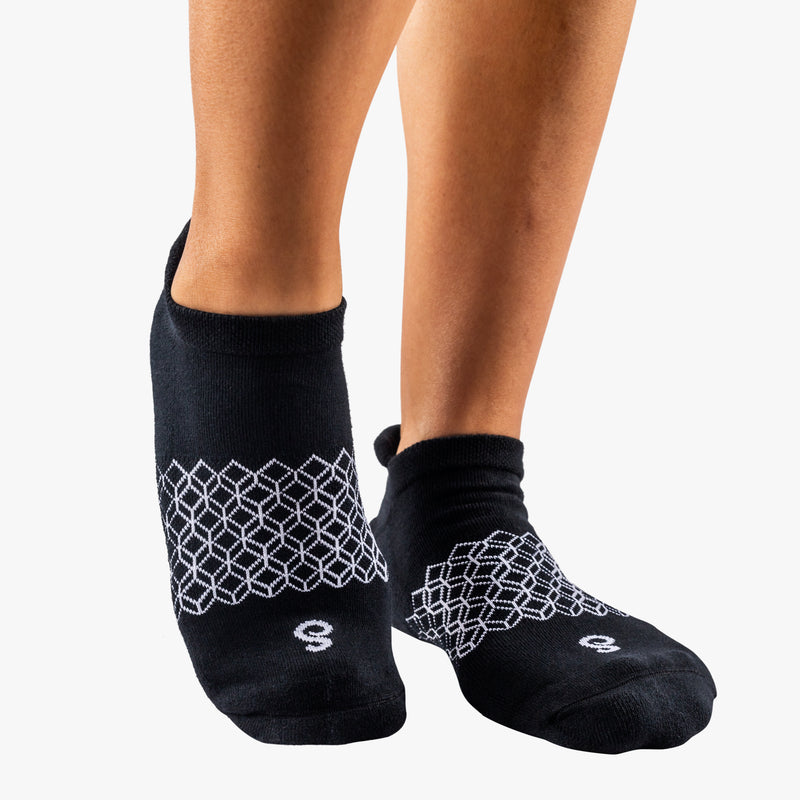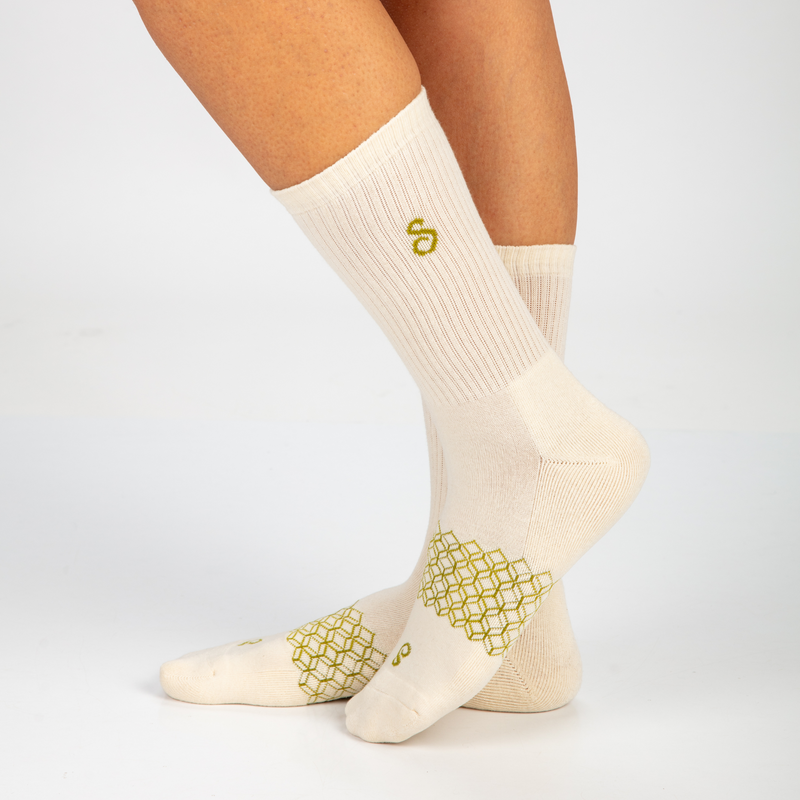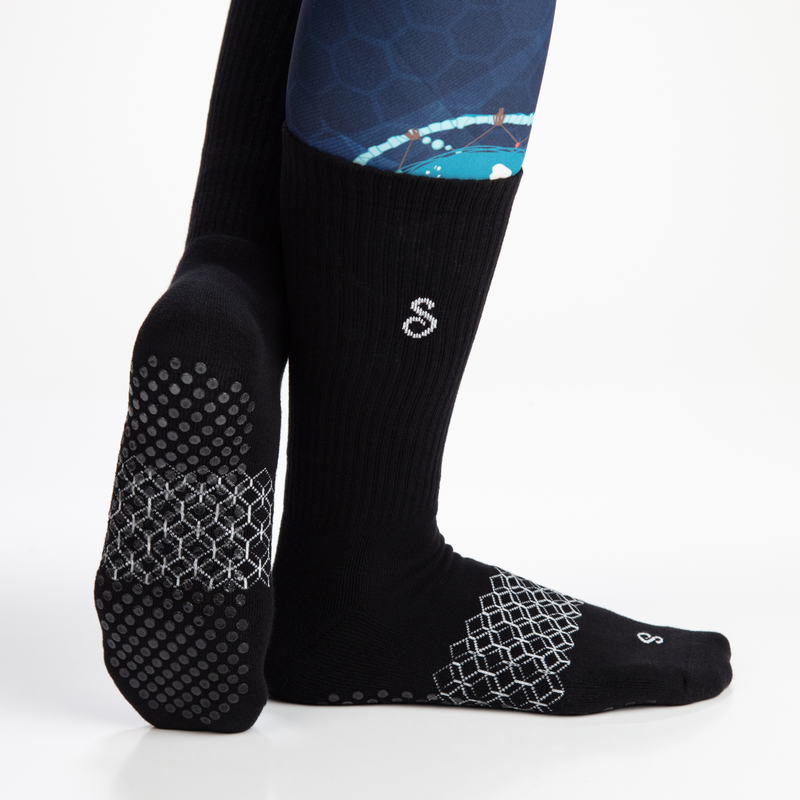
In our ongoing quest to cover all aspects of gripper socks, the question at hand is whether the size of the grippers actually makes a difference?
Well... we have an answer for you! And it’s a little complicated, so strap in for the next 4 minutes if you’d like learn everything you’d ever want to know about the impact of grip size on gripper sock performance.
Don't have four minutes?Here's the TL;DR on grip sizes - key takeaways
|
Background: grip sizes we tested
During our two-year research & development phase prior to launching hipSwan’s Batch 1 Flow gripper socks in 2021, we went through several prototypes of sock designs, including several iterations of gripper patterns and sizes.
(Depicted above: early prototypes of hipSwan’s Flow gripper socks showing different gripper sizes and densities)
As shown in the image above, grippers are most commonly arrayed in dotted patterns. The most popular gripper materials are silicone and PVC.
The grippers are applied during a secondary, separate process once the socks themselves have been knitted (learn more about how socks are made).
There are many factors involved in affixing quality grippers and it requires specific machinery and skills. So much so, that many sock manufacturers outsource this process to specialist subcontractors.
Grip size: aesthetics vs performance
Apart from aesthetic preferences, does gripper size and pattern make a difference to their performance as gripper socks?
The answer is yes, and it's multifaceted. Let's dive into the details of how grip size influences gripper sock performance.
Key Factors in Gripper Sock Performance
Traction and Stability
Larger and denser gripper patterns provide more surface area contact with the ground, enhancing traction and stability. This is particularly beneficial for activities like yoga, Pilates, barre, or any exercise requiring firm footing.
Comfort and Pressure Distribution
A well-designed gripper pattern can distribute pressure more evenly across the foot, improving comfort. Dense patterns can prevent pressure points, while overly sparse patterns might lead to uneven pressure distribution.
Durability
The density of the gripper pattern can also affect the socks' durability. A denser pattern may resist wear and tear better over time, as the load is distributed across more contact points, reducing stress on individual grippers.
Flexibility
The size of the grippers can influence the flexibility of the socks. Smaller grippers tend to be less intrusive and allow for greater flexibility and natural foot movement, whereas larger grippers might restrict flexibility slightly but offer more stability.
Breathability
A denser gripper pattern might reduce the overall breathability of the sock, as there is less fabric exposed to air. This can affect how well the socks regulate temperature and moisture.
Gripper Sizes: additional critical factors
Beyond size and pattern, four crucial elements significantly impact gripper sock performance:
Gripper Coverage
The overall gripper pattern coverage of the sole can vary both in height and width. It is generally preferable to extend the coverage of the sole as much as possible. However, there are technical limitations to this, due to the machinery used for placing the grips on the socks. Additional coverage can be achieved by making a second run through the gripper machine, thus increasing costs.
Gripper Material
Silicone is more flexible and provides better traction than PVC. PVC is easier to apply flatly, more durable, and can more easily be made into different colours and branded patterns. While both are man-made materials, silicone grippers have superior sustainability properties.
Gripper Shape
Related to their differences in chemical properties, silicone and PVC grippers have different shape characteristics. Silicone is a gel-like substance that hardens after being applied to the sock, so its shape will not be completely flat but rather bubble like and the finished effect will be more flexible and porous. In contrast, PVC can be applied in thinner and flatter layers; however, this is at the expense of stickiness of the grippers.
(Depicted above: closeup side view diagram of PVC vs silicone grips)
Gripper Height
The amount of material and the height of each gripper also play a large role in how well the socks hold traction on the floor or apparatus. This must be weighed against comfort of the wearer, as thicker and harder grips (such as can be made with PVC) can possibly be felt by the wearer and cause discomfort.
Grip Size - how hipSwan’s grip socks are designed
By considering all of these factors, we designed the optimal gripper size and pattern for our Flow gripper socks, ensuring superior performance for our customers.
The original gripper pattern design launched in 2021 has evolved over time, taking into account our customers’ comments. We extended the coverage in 2023 and are introducing larger silicone grips and a denser pattern with Batch 10.
We also introduced 3 sizes in 2023, so as to offer a proper fit to a wider range of customers.
We will continue to enhance the design in collaboration with our customers and plan to introduce a crew-length version next (tentative timing is late 2024).
For more information on our Flow gripper socks, click the green button below:






